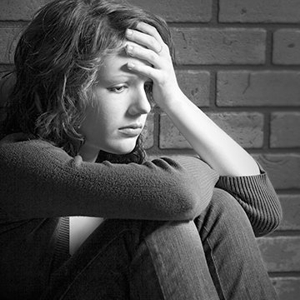Researchers have uncovered a link between loneliness and development of bad eating habits, such as giving in to cravings and turning to junk food. And it’s specific to young women. The question arose as scientists studied post-COVID health trends…

The trigger…
“Researching how the brain processes loneliness, and how this is related to obesity and health outcomes hasn’t been done [before],” said Senior Author of the study report, Dr. Arpana Gupta, of UCLA.
According to an abstract of the Study Report, “[She] wanted [specifically] to research the negative impacts of loneliness, especially as people continue to be working remotely after the COVID-19 pandemic, and how the brain interplays with social isolation, eating habits, and mental health.”
What they did
The researchers recruited 93 female subjects and asked them about their’ “support system and their feelings of loneliness and isolation.” Then the subjects were split into two groups – those who were rated high on the ‘isolation’ scale, and those who were rated ‘low’.
The subjects in the ‘higher isolation’ group, “tended to have higher fat mass, lower diet quality, and greater cravings. In addition, they tended to exhibit negative signs such as, “reward-based eating and uncontrolled eating, and increased levels of anxiety and depression.”
The actual experiment involved showing the women a series of food and non-food images. This was followed by a series of sweet food versus non-food, and savory food versus non-food images.
The team recorded subjects’ MRI brain scans as each image was displayed.
What they found
The abstract notes: The researchers found that the group of women who perceived themselves to be lonely experienced increased activation in regions of the brain associated with a greater cravings to eat sugary foods, and decreased activation in the brain region associated with self-control towards eating behaviors.
“These findings are interesting because it provides evidence for what we intuitively know,” Gupta observed. “When people are alone or lonely, it impacts more than how they are feeling; they under-report what they eat, their desire to eat, and their cravings especially for unhealthy foods.”
The takeaway
“If you have more cravings, you eat more and may have more anxiety or depression, which may lead you to eat more,” Study Lead Author Xiaobei Zhang explained, calling it a,”vicious cycle between unhealthy eating and negative mental symptoms.”
My take
The researchers suggest that ‘holistic mind-body interventions’ could be used to break the ‘vicious cycle’. That sounds like a highfalutin way of saying those most prone to ‘loneliness eating’ disorders need to be more mindful of their situation, and make conscious positive eating choices in the face of temptation.
I have a dear old friend of more than 40 years who lived alone and worked in a job that, by its nature, led to her suffering a restricted social circle and a dearth of non-work activities. She developed a potentially deadly eating disorder complex that saw her balloon to a weight of almost 400 lb. / 180 kg before she sought help.
Today, she’s more or less fine – after dropping about 250 lb. / 114 kg, and undergoing a series of surgeries. First, there was a gastric restriction staple. Then, after the weight loss, several procedures to eliminate the huge ‘apron’ of empty skin left behind.
I often wonder whether her story would have been different if I’d kept in better touch with her before her issues arose…
~ Maggie J.

